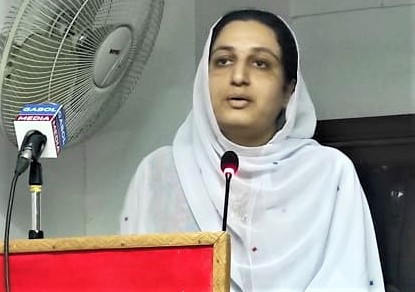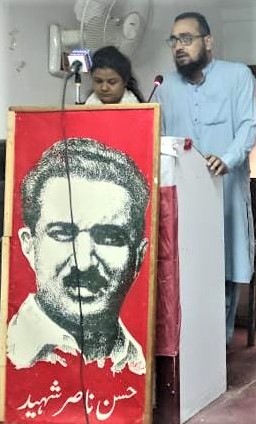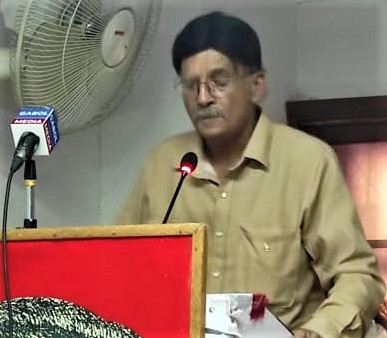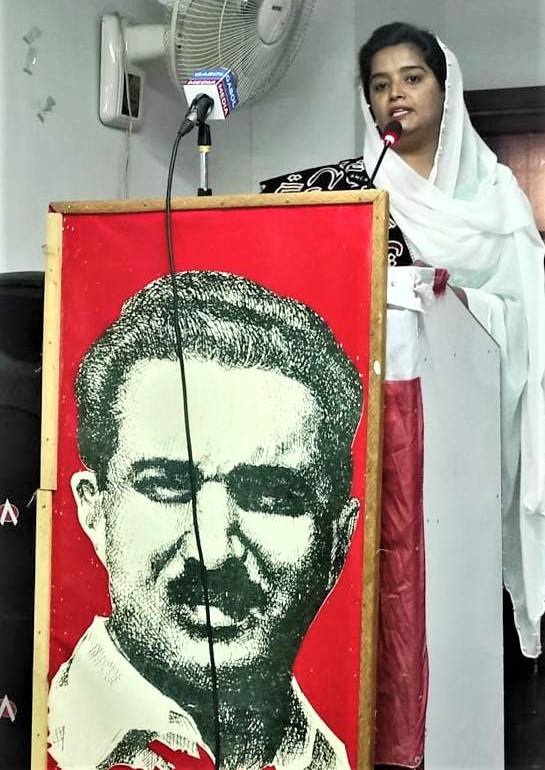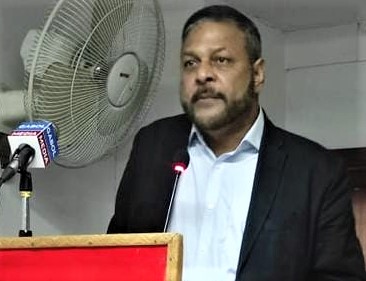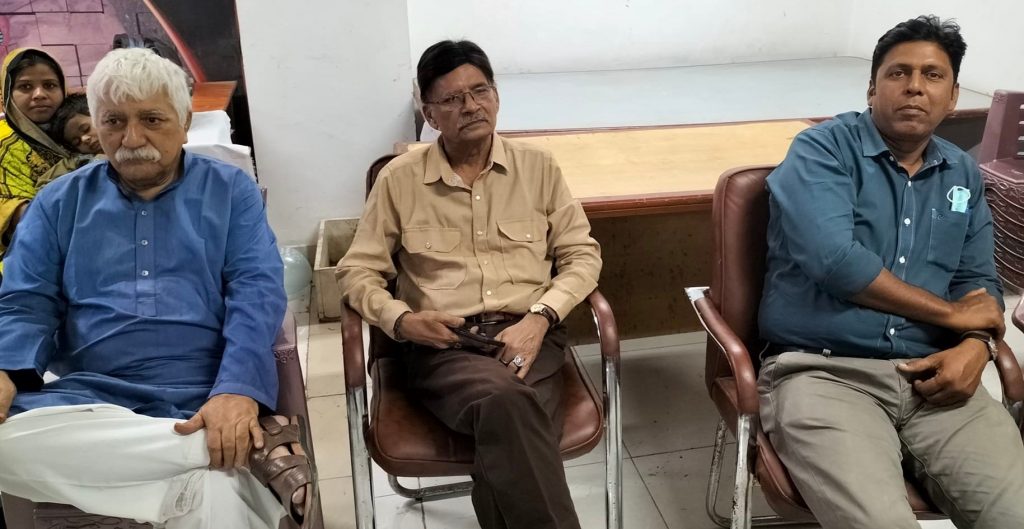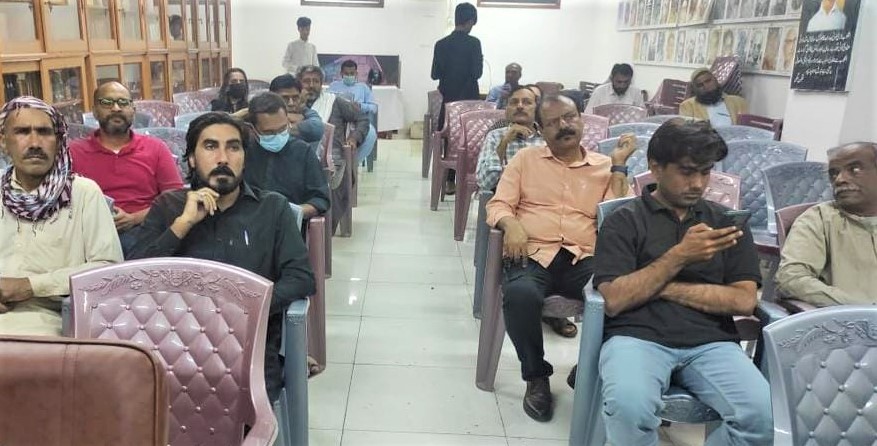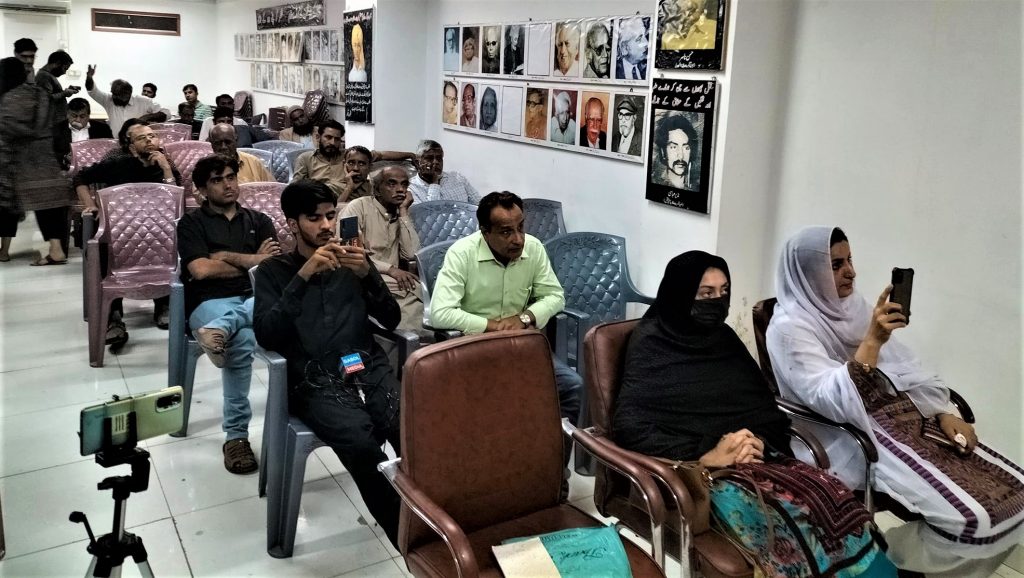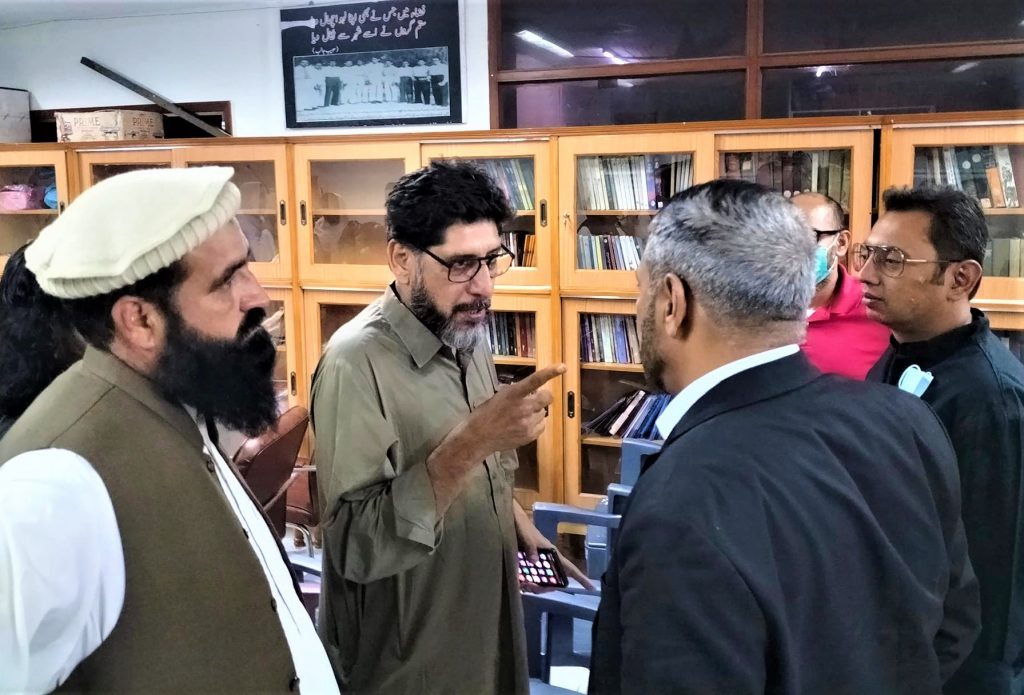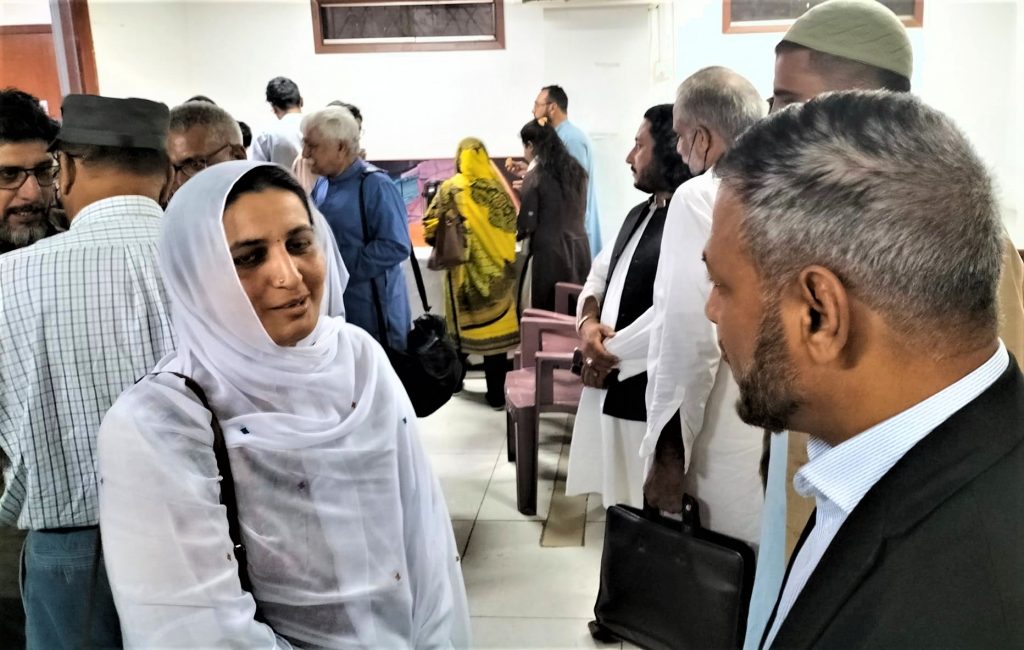Family members demand immediate recovery of missing persons
AWP Karachi organises seminar on “Shaheed Hasan Nasir and the issue of enforced disappearances in Pakistan’
by Fatima Zaidi
The Awami Workers Party, Karachi held a seminar on Saturday on the issue of enforced disappearances in Pakistan in remembrance of the country’s first-ever missing person, Comrade Shaheed Hasan Nasir.
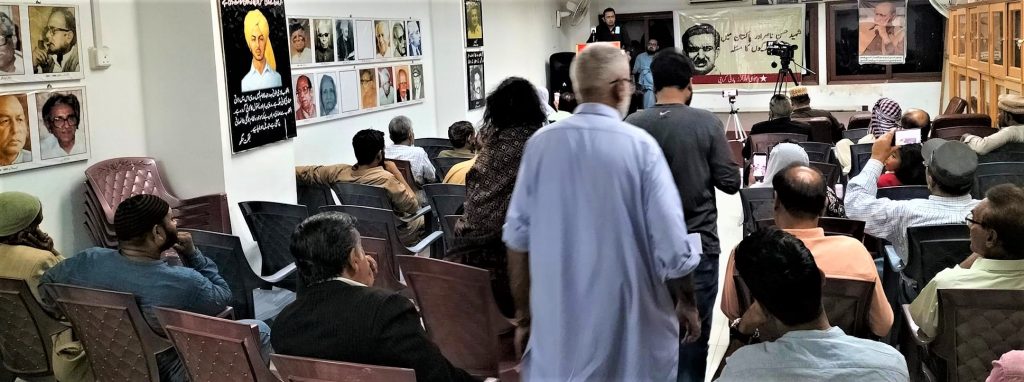
The event brought together all oppressed nation-ethnic and segments of society fighting for the return of their loved ones and calling for an end to the tyrannical practice and recovery of the abducted persons.
The speakers expressed solidarity with the family members of those who were abducted and their fight for the safe recovery of the missing persons.
They impressed on the importance of highlighting the agonies of the affected families and the causes they were working for which they were picked up and remain missing.
Baloch Yakjehti Committee, Karachi’s organiser Amna Baloch spoke about how Balochistan has been at the centre of this brutal tactic owing to its historical struggle. Lamenting the state authorities’ apathetic attitude towards the Baloch people, she said they have been left on their own to collect the data of missing persons.
As of 2019, at least 47,000 Baloch people had either been abducted or gone missing, she said, adding that this number was also verified by the Human Rights Commission of Pakistan (HRCP) in its report ‘Balochistan: neglected still’.
“The issue was getting worse with each passing day in the province. About 60 students were forcibly picked up and disappeared in just the past month,” Amna said.
She spoke of the most recent disappearances of two students, Sohail Ahmed and Faseeh Baloch, from the premises of the University of Balochistan. This prompted a massive protest by the students but sadly have gone unreported in the media as well, Amna added.
Speaking on behalf of the Baloch Muttahida Mahaaz (BMM), Azeem Dehqan said, the state repression of the Baloch people is not only limited to Balochistan. They are being targeted in other provinces as well. A number of Baloch political activists, including students, have been picked up from their homes and universities in Karachi as well.
Voice For Missing Persons Of Sindh (VMPS) media secretary Suhni Joyo also echoed the same sentiments saying that the incidents of enforced disappearances started in the province in 2017 and are on the rise.
“However, we don’t only stand for the Sindhi missing persons, but also support the struggles of the Baloch, Pashtun, Urdu speaking as well as Shia missing persons,” she said.
“Our struggles are common as we are all fighting for upholding our fundamental rights, and it will continue till the return of every single missing person,” Suhni said.
Rashid Rizvi from the Shia Missing Persons Movement said that hundreds of pilgrims were picked up and disappeared after their return from Iraq. Their homes were raided and families terrorised, he said.
Referring to the recent arrests of families of missing persons protesting at Kala Pul for the return of their loved ones, Rizvi said that the state is creating a dangerous divide and discriminating against its citizens.
“This will have a dangerous consequence for the state and the society! The sooner the state realises this, the better,” he added.
Pakhtun Tahafuz Movement (PTM) Karachi leader Muhammad Sher said the Pashtuns were the most affected and persecuted and brutalised people in the state’s so-called war on terror.
“Scores of Pashtuns living in tribal regions were picked up, tortured, killed in encounters, maimed and even handed over to the US in a bid to appear as if the country was fighting terrorism,” Sher said.
Comrade Khurram Ali, AWP Karachi General Secretary said that the biggest tragedy with Karachi was that the city’s political parties never took ownership of the people who went missing. “This left the missing persons’ families scrambling for a platform to raise their voice on,” he added.
Ali, who is also convenor of the Karachi Bachao Tehreek, said that none of the political parties even bothered to gather the data of those who went missing.
He impressed on the importance that the struggle should not be kept just limited to the release of those who went missing, but to continue talking about the issues because of which they were forcibly disappeared, Ali said.
“Why is it that only those who raise their voice against this oppressive system and state brutality go missing,” he questioned.
“We must understand that this is a battle of narrative, where those who challenge the narrative of the ruling classes are forcibly disappeared,” he said, adding that everyone should talk about these issues.
AWP-Karachi President Shafi Shaikh said it was important to know why Hassan Nasir became the first missing person of Pakistan.
Shedding light on the revolutionary’s political ideals and history, Shaikh said he had played an important role in the Telangana Kissan (peasant) Movement of 1946 before he migrated to Pakistan.
The scion of Nawab Mohsinul Mulk of Hyderabad Deccan, Nasir left his life of riches and became a member of the Communist Party of Pakistan. He began organising the working class and bringing together the oppressed nations of Pakistan.
“Today, we should not just speak of his sacrifices and struggles, but also carry on his legacy and devise ways to unite and strengthen the movement of the oppressed,” he concluded.

